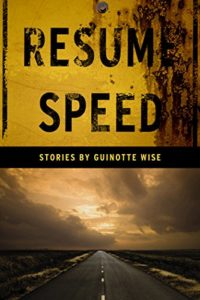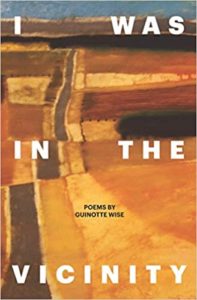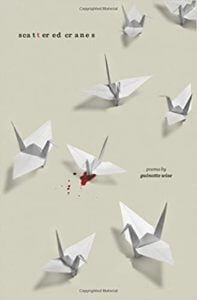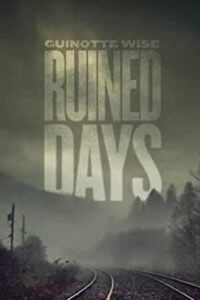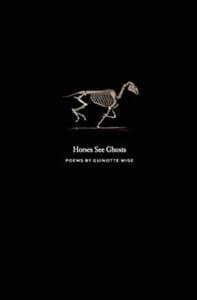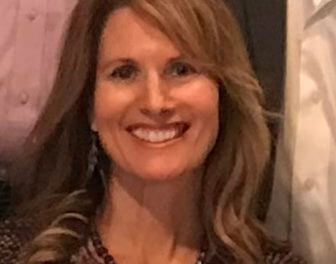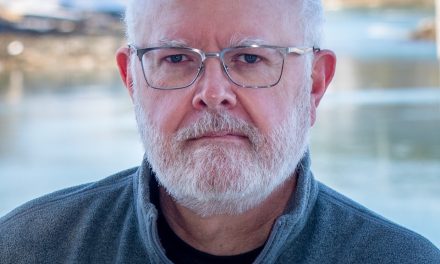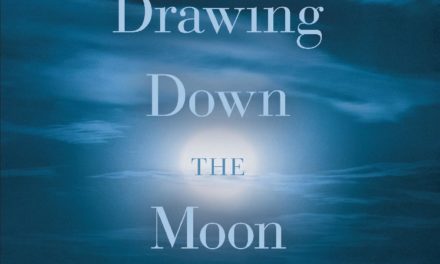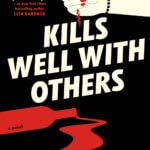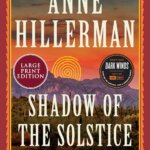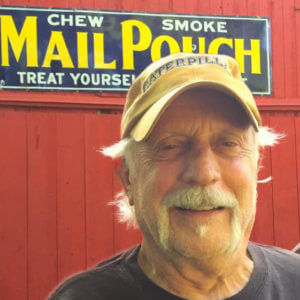
SS: Welcome, Guinotte. Having read your looks and seen photos of your sculptures, I feel like I’ve known you forever. I also feel your linguistic palette is as broad as your artistic palette. Can you share a bit about your background?
GW: I spent most of my working life as a Creative Director at various advertising agencies. The biggest was Saatchi & Saatchi in Los Angeles, and I worked on a major automobile account, TV, radio and print. The agency and the city were good to me; part of me loved it out there. Part of me yearned for the change of seasons and owning horses again. I got homesick and took the cure; I came back.
SS: What in your childhood contributed to you becoming a writer?
GW: I was moved a lot as a kid, NY, Louisiana, Kentucky, Oklahoma, Missouri, a dozen grade schools … so books became stand-ins for long-term friends, and we took to one another with dreamlike intensity.
SS: What are some day jobs that you have held? If any of them impacted your writing, share an example.
GW: A kind of typical varied writer’s resume, you know, like truckdriver, bartender, labor on bridge jobs, night pickup at a mortuary, rodeoer, busboy, field engineer for a paving company, etc. All have showed up in my fiction—working on bridges morphed into a slipstream-type story titled “The Sirens of Lake Texoma.” That one included racial elements, true friendship, a Texas twister, and voices tempting workers on a core-drilling rig in deep water. I had worked on the bridge during the week, and the barge-mounted rig on weekends.
SS: How does your home and its environment influence your writing? To what extent?
GW: We live on a farm, Wise Acres. It was my reward for escaping Los Angeles thirty-five years ago. Living rural and having rural friends gave me insight and distance one doesn’t get in a packed urban setting. The influence on my writing has been positive; peace, animals, the routine of day to day upkeep, clear nights with lots of stars. I write a lot of poetry; I’m on my fourth book of poems now.
SS: Hilary Mantel (Wolf Hall) says that a Catholic upbringing is the only qualification a writer requires. Can you relate to this idea? Do you have any similar writing qualifications?
GW: I sure can. My earliest religious upbringing was Catholic, then Episcopal which is pretty close in so many respects. It opened me up to the mystical. Ron Hansen writes about it in “A Stay Against Confusion, Essays on Faith and Fiction,” a fascinating book in which he explores stigmata, martyrs, St. Ignatius of Loyola. Spiritual energy, attention to the divine. Sounds dull, but it’s Ron Hansen and it’s scary good.
SS: Were you a young writer, a late bloomer, or something in between? What advice would you give to others who took up writing at a similar life phase?
GW: All three off and on. Complicated by the fact I yearned to be an artist, sculpture my addiction. Now they sort of work together in that when one falters I take up the other. In between I mow and do maintenance. My advice to young, middle, older aspiring writers; jump in, or dip a toe if that’s your style, but write. Your voice will become stronger as you go, and you could be the next big thing. I haven’t been but it has still been rewarding. And there’s still time for me—and you! Hey I’m only 82. Ferlinghetti wrote a novel at 100, and he had his first one-man painting show in NY at 101. Well-received by critics, and they don’t give you a pass for age.
SS: What book are you currently reading?
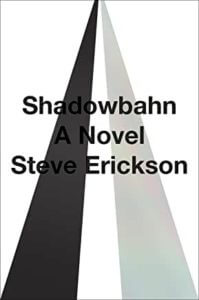
SS: What are you working on at the moment?
GW: Oddly enough I just finished a song. A collaboration, lyrics for a blues/country song with a NY friend, Wick Beavers, photographer. He does vocals for it and guitar. It’s up on soundcloud, Itunes, Spotify and a bunch of others. It’s an amalgam of a poem called “Horses See Ghosts” and stories about my uncle, Reno Pete. It’s been called a cross between Cooder and Cohen. Since this’ll be online, here’s a link: https://rb.gy/of3p1z
I have a book of essays titled Chickens One Day, Feathers the Next at the publisher for 2022 release. Edits for that once it’s in the queue.
SS: How has Covid-19 affected your writing? Your future writing? Your life? Your family?
GW: I was working on a present day novel, L.A. Hardscape, a thriller, and covid put the kibosh on it. I couldn’t just ignore covid but it changed everything for the book. I couldn’t just put the characters in masks, you know, and continue it. Future writing? I don’t know, I suppose there will be occasional references to it. It has affected my essays and nonfiction–poetry too. It affected my life very little; I’m kind of a hermit. I even stopped grocery shopping; my wife does that. She said it would be safer if just one of us shopped rather than both, and she’s right. Family of all political persuasions got their shots, I’m happy to say.
SS: If you were deserted on an island, which three people would you want with you? Why? One fictional character from your book, one fictional character from any other book, one famous person that is not a family member or friend.
GW: Dixie, the protagonist’s girl friday in L.A. Hardscape (my Covid-interrupted novel) and later his romantic interest. She’s tough, intelligent, funny and punk-attractive. Santiago, of The Old Man and the Sea, so we’d have plenty of fish to eat, and maybe Bear Grylls so we’d have some chance of getting back to civilization. Or Anthony Bourdain, to dream up great ways of cooking Santiago’s catch.
SS: It is often believed that almost all writers have had their hearts broken at some point in time, does that hold true for you?
GW: Oh, you bet. I started early and returned for it often.
SS: Who is on your Mt. Rushmore of all-time great writers (choose four faces to carve into your monument)?
GW: Thomas McGuane, F. Scott Fitzgerald, Joan Didion, Hunter Thompson.
SS: In what circle of Dante’s Inferno would you place the average Amazon reviewer?
GW: Oh boy. I’ve been fortunate to get decent reviews from serious readers, but I read some that are flat out hate screeds. Angry people. Fifth circle, anger. They have an online pulpit.
SS: Who is the protagonist in your most recent work? Describe him/her in ten words or less.
GW: A young ex-boxer turned landscaper and private investigator.
SS: What’s the best writing advice you’ve ever received?
GW: The Ron Carlson observation: “All of the valuable writing I have done in the last ten years has been done in the first twenty minutes after the first time I wanted to leave the room
SS: Describe your books in 3 words:
GW: Not too bad.
SS: Pantser or Plotter?
GW: Pantser.
********************
Guinotte’s books are available through Amazon:
Resume Speed Night Train, Cold Beer I Was in the Vicinity Scattered Cranes Ruined Days Horses See Ghosts
********************
An excerpt from the opening of L.A Hardscape—the covidus interruptus novel
“Hunter?”
“Who’s this?”
“Hunter, listen. I’m just gonna say this once. You can believe it or not, I don’t give a shit. Word is you’re not laying down for the Villalobos fight. Here’s the deal. They’re sending Bonnatello to break your fingers. All ten. Then he’s gonna drop you off in South Central, leave you to whatever happens there. Got that?” The voice was muffled, but Hunter could hear the fear and the sweat and the eyeballs darting.
“Got it.”
“Tomorrow night. Your place.” The line went dead.
It didn’t matter who it was, someone Hunter had done a favor for in the past, talked his kid out of the fight game, acquired impossible tickets for someone’s boss, gotten someone out of a jam with L.A.P.D. Or just someone who hated Bonnatello; a crowd. Didn’t matter. He believed him. It had been too easy, walking away from the business. He was owned. He’d told them to fuck themselves. Low level mob assholes.
He half knew there would be repercussions. The big guys didn’t care, fighters like Hunter were cheap. Only the little dicks who’d seen too many movies cared. Bonnatello was a badass, a torpedo with a sadistic streak, and the only good thing about it was, he’d come alone. Probably thinking he’d muscle in with a gun, sap him, duct tape him, do the dirty work, drop him off in some shit part of town, hoping the locals would take care of the rest. If they didn’t, lesson learned. If they did, lesson really learned.
Dammit, it wasn’t like he was walking away from the mob, just some second rate version of it and the fight club; they’d get over it. He was going to quit anyway. He was going nowhere. But he could beat Villalobos like a mule. He could just leave, go back home. But fuck that. He liked L.A. Loved it, as a matter of fact. He’d quit Notre Dame as heavyweight champion of the Bengal Bouts, for professional boxing in L.A., then he’d quit L.A.P.D. training as a salaried cop, again to fight. Now he was quitting fighting for…what? Trimming bushes and mowing lawns? A three-time quitter.
Thanks to his landlord, he was thinking about a lawn-care business. During a rough period when Hunter fell behind on his rent, Murph told him to mow the place, prune some plants, make it look decent, and they’d work it out. Murph liked the flagstone walk and some other improvements Hunter had made out back, told him to just keep it up, but do the front, too. Hunter planted zebra grass and iris in front and dug a gentle swale and re-grassed it for water conservation during rainy seasons. He liked that you could plant stuff in L.A. and it would grow up your nose in a week.
When one of the thugs at the club asked what he was going to do if he quit fighting he’d said maybe go back to school, get his MBA.
The thug answered, “Basketball? You ain’t tall enough.”
********************
You can follow Guinotte on social media here:
********************
This post contains Amazon Affiliate links. As an Amazon Associate, I earn a small amount from qualifying purchases.

